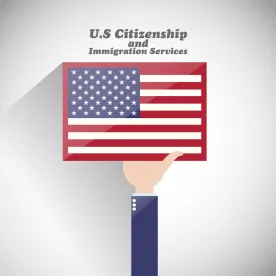U.S. Citizenship and Immigration Services (USCIS) issued a Policy Memorandum entitled “Updated Guidance for the Referral of Cases and Issuance of Notices to Appear (NTAs) in Cases Involving Inadmissible and Deportable Aliens” on June 28, 2018. This Policy Memorandum was issued in response to President Trump’s Executive Order (EO), “Enhancing Public Safety in the Interior of the United States.” One of the priorities listed in the EO is to remove aliens from the United States where necessary, including those aliens who are deportable or inadmissible, with no exceptions. USCIS has the authority to file a Notice to Appear to start deportation proceeds against EB-5 investors in several instances:
-
There has been an immigration violation and the alien is out of status;
-
There is fraud, misrepresentation, and abuse of public benefit programs; and
-
There is a conviction for a crime, or even an arrest for a criminal offense where the case has not yet been resolved.
It is now more important than ever for EB-5 investors to maintain their eligibility for conditional permanent resident status, especially during any period of visa backlog occurring in between the time of I-526 Petition approval and when the investor’s priority date becomes current.
This is the first in a series of blog entries discussing how EB-5 investors and their dependents can maintain eligibility for permanent residence. This blog post focuses on maintaining nonimmigrant status.
EB-5 investors and/or their dependent family members who may be in the U.S. with nonimmigrant status must be careful to maintain that nonimmigrant status to avoid being placed in removal proceedings by USCIS.
Many investors and/or their dependents are foreign students in the U.S. Foreign students in the U.S., including dependents of investors, should understand that they:
-
Must continue studies pursuant to the F-1 or J-1 or M-1 forms issued by the school;
-
Cannot work without permission. Students must work pursuant to CPT or OPT or part-time on campus employment. Students must keep in mind that even unpaid internships or volunteer work can be considered “employment,” thus they must check with their school and immigration attorney to see if the activity is permitted under the student status; and
-
Should check with their lawyer and international students office before: working, changing programs, reducing course load or stopping coursework.
Importantly, the Trump Administration recently changed certain immigration rules as they apply to foreign students. An F, J, or M nonimmigrant begins accruing “unlawful presence,” due to a failure to maintain his or her status on or after Aug. 9, 2018, on the earliest of any of the following:
-
The day after the F, J, or M nonimmigrant no longer pursues the course of study or the authorized activity, or the day after he or she engages in an unauthorized activity (such as unauthorized employment);
-
The day after completing the course of study or program (including any authorized practical training plus any authorized grace period);
-
The day after the Form I-94 expires, if the F, J, or M nonimmigrant was admitted for a date certain;
-
The day after an immigration judge orders the alien excluded, deported, or removed (whether or not the decision is appealed).
Any EB-5 investor or dependent who accrues more than 180 days of unlawful presence is thereafter barred from entering the U.S. in any category, including on a green card, for three (3) years. Any EB-5 investor or dependent who accrues more than 365 days of unlawful presences is thereafter barred from entering the U.S. in any category, including on a green card, for ten (10) years. Accruing unlawful presence following the violation of student status can bar an EB-5 investor and/or dependent from obtaining the EB-5 green card. It is critical for foreign students to check with their international student office and/or their immigration attorney prior to changing their coursework, reducing coursework, taking time away from school, or accepting any employment, including volunteer positions and unpaid internships.
For EB-5 investors or their dependents in another nonimmigrant status in the U.S., such as H-1B or H-4, L-1 or L-2, and E-1 or E-2, changes to employment can affect underlying nonimmigrant status. Changing employers, location of employment, wage rate and/or position can have an effect on whether the investor is maintaining proper status in the U.S. It is critical for the investor to check with his or her immigration attorney prior to making any changes to employment to ensure he or she is maintaining lawful status in the U.S. Failure to maintain lawful status in the U.S. can lead to the commencement of deportation proceedings and ineligibility for the EB-5 green card.



 />i
/>i

